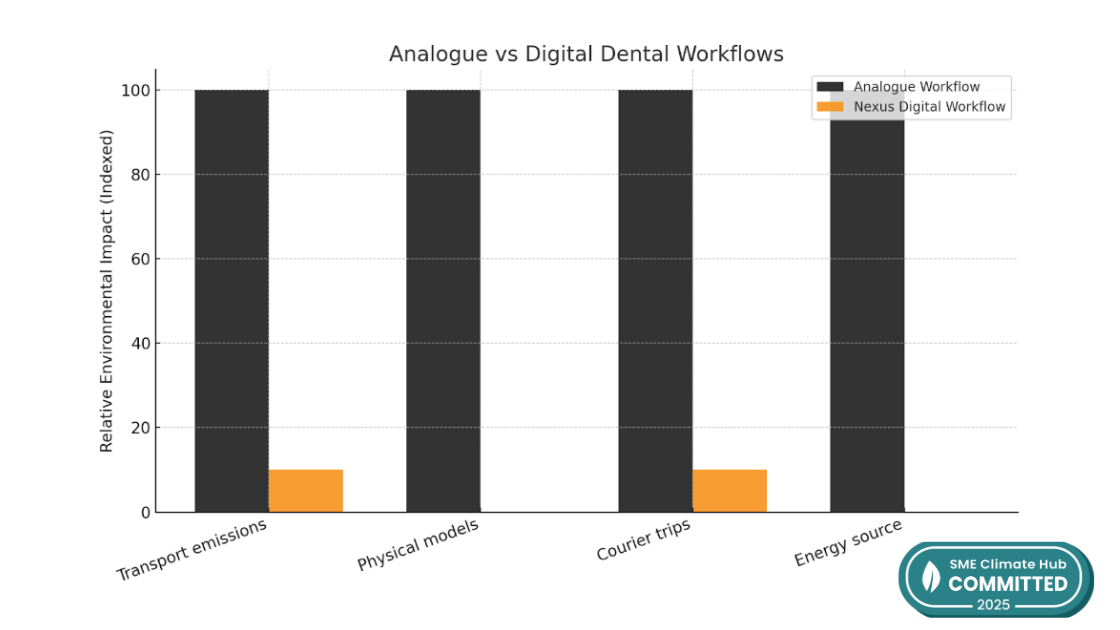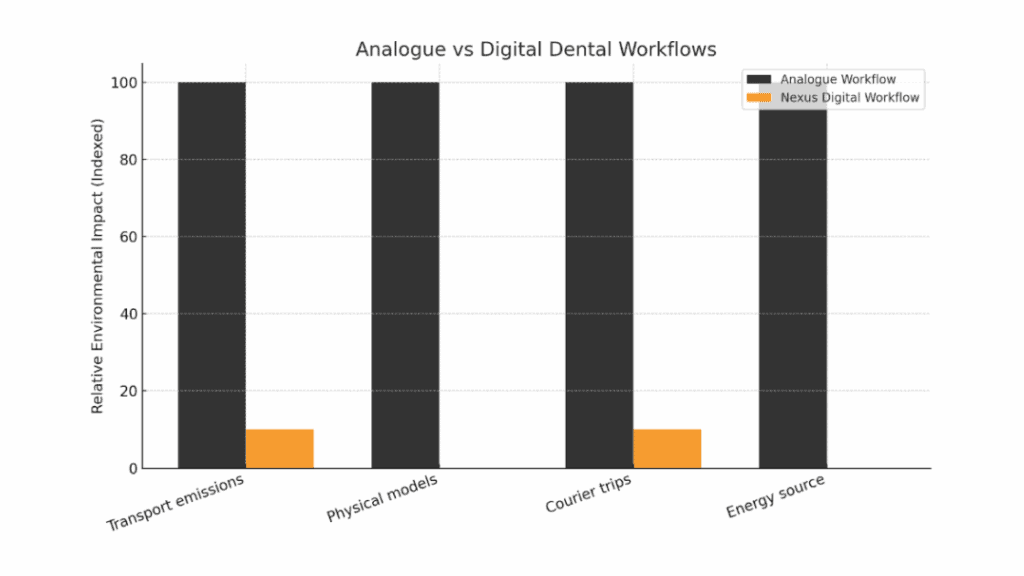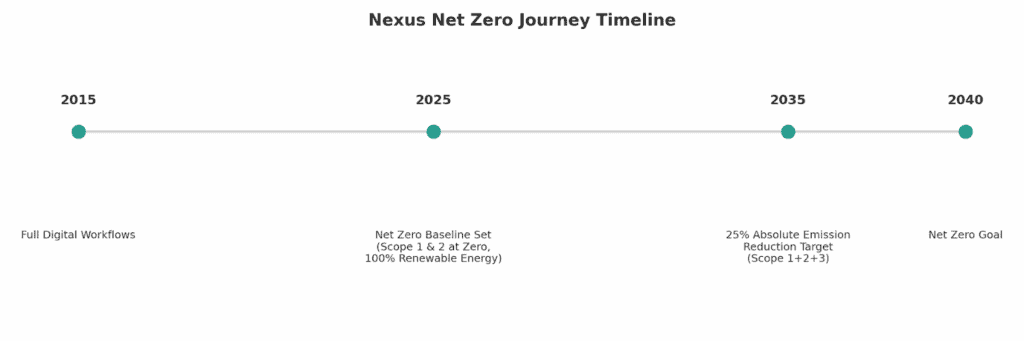
At Nexus Dental Laboratory, we've always seen progress as more than just technical excellence. As a pioneer in digital-first dental labs, we've spent the past decade not only demonstrating that innovation can enhance precision, strengthen partnerships, and improve patient outcomes, but also leading the way in protecting the planet we all share.
Our pride in joining the SME Climate Hub, a global initiative that supports small and medium-sized businesses on their journey to net zero, is a testament to our commitment. By aligning our operations with science-based targets and holding ourselves accountable for meaningful change, we are not only committing to action but also aligning with global efforts to combat climate change.
The dental sector, like many healthcare-related industries, has historically relied on resource-heavy processes. Analogue workflows require physical models, repeated deliveries, and energy-intensive equipment, all of which carry a carbon cost.
When we created our fully digital workflow over ten years ago, we saw not only gains in efficiency and accuracy, but also an opportunity to reduce waste and transportation emissions fundamentally. That decision set the foundation for our current climate strategy: to continue innovating in ways that benefit both our clients and the environment.
Our ultimate goal is to achieve net zero by 2040, a commitment that aligns us with global climate commitments and should reassure you of our direction, making you feel confident and secure about our future sustainability efforts.
25% reduction in absolute emissions by 2035, a clear near-term milestone that ensures we stay on track.
Our baseline year is 2025, the point from which we measure all future progress. This year marks the beginning of our sustainability journey, enabling us to track our progress toward our emission reduction targets.
These goals are directly tied to the way we run our business and make decisions every day.
The contrast between digital dentistry and analogue methods is stark. Traditional analogue workflows in dental labs typically involve:
By contrast, our digital-first approach has removed almost all of these steps. In practice, this has meant:
This shift is more than operational convenience. It represents a 100% improvement compared to industry norms, which are still reliant on analogue methods (as measured in our reporting), and demonstrates how sustainability and clinical precision can advance together.

*This visual shows the indexed environmental impact of traditional analogue workflows (set as baseline = 100) versus our digital-first approach, using only the real data documented in the SME Climate Hub Report: Analogue Energy Source assumed not to be renewable.
The next stage of our journey focuses on Scope 3 emissions, those within our wider supply chain and customer use. These are more complex to measure but essential for a complete picture of our impact. We plan to:

Our climate strategy is led by Steve Campbell, Managing Director, who has signed and published our Net Zero Commitment on behalf of the business. This ensures accountability sits at the very top of our organisation. However, it doesn't stop there; our entire team is involved in waste reduction, recycling, and the everyday decisions that make sustainability an integral part of our culture.
When we transitioned to digital workflows a decade ago, it was a step toward modernising dental care. Today, it's clear that choice also positioned us as early adopters of sustainable practices within dentistry. Joining the SME Climate Hub marks the natural next step: a way to ensure that our responsibility to patients extends to our responsibility for the planet.
At Nexus, excellence in dentistry and ecological awareness are not separate goals; they are two sides of the same coin. By continuing to innovate with both in mind, we aim to set a standard not just for what a dental lab can achieve, but for how an entire industry can evolve.